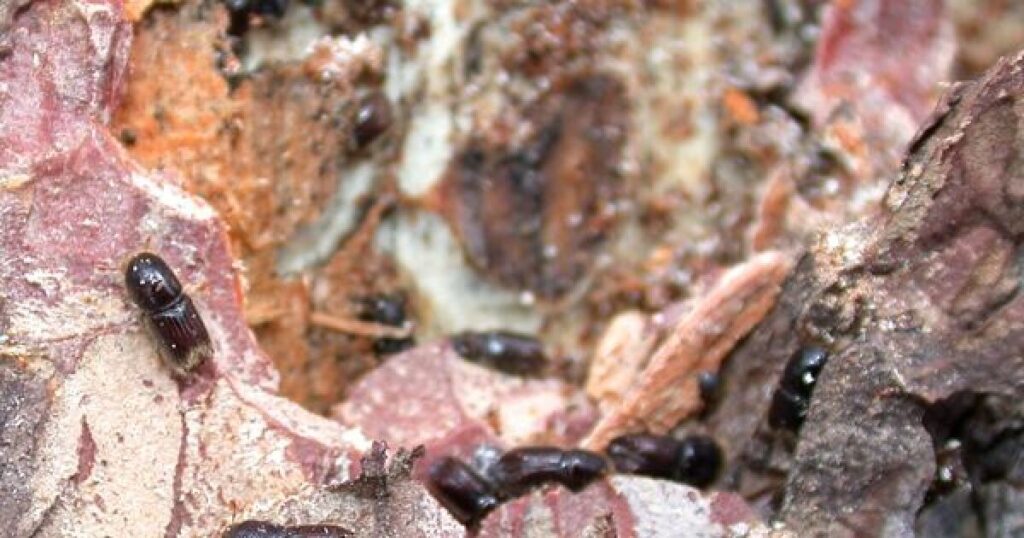In a novel attempt to combat a persistent problem affecting North America’s forests, researchers at Northern Arizona University are turning to sound technology. While only a small fraction of bark beetle species in the region are harmful, those that are have decimated vast numbers of conifers in the western United States over the past three decades.
The team, led by Rich Hofstetter at the Insect Ecology and Management Lab, is exploring the use of acoustics to battle these destructive beetles. The beetles typically invade trees that are already stressed, drilling into the bark to lay eggs and inviting others to join the assault.
Inside the dark, sap-filled environment beneath the bark, these insects rely heavily on sound to communicate. However, this same environment is ideal for beetle larvae, which can kill the tree by consuming its inner bark and spreading a harmful fungus.
To disrupt this process, Hofstetter’s team has employed a tactile transducer, a device that functions like a bass-heavy speaker, sending vibrations through tree tissue. This method has shown promise in interfering with the beetles’ communication, thereby limiting their tunneling, reproduction, and survival.
Current experimentation focuses on using sound to prevent bark beetles from attacking healthy trees. The research, supported by funding from the Arizona Board of Regents, aims to create a device that enables forest managers to detect and manage beetle infestations without resorting to chemical insecticides.
This article was based on an Earth Note by Diane Hope, produced by KNAU and the Sustainable Communities Program at Northern Arizona University.
—
Read More Arizona News










